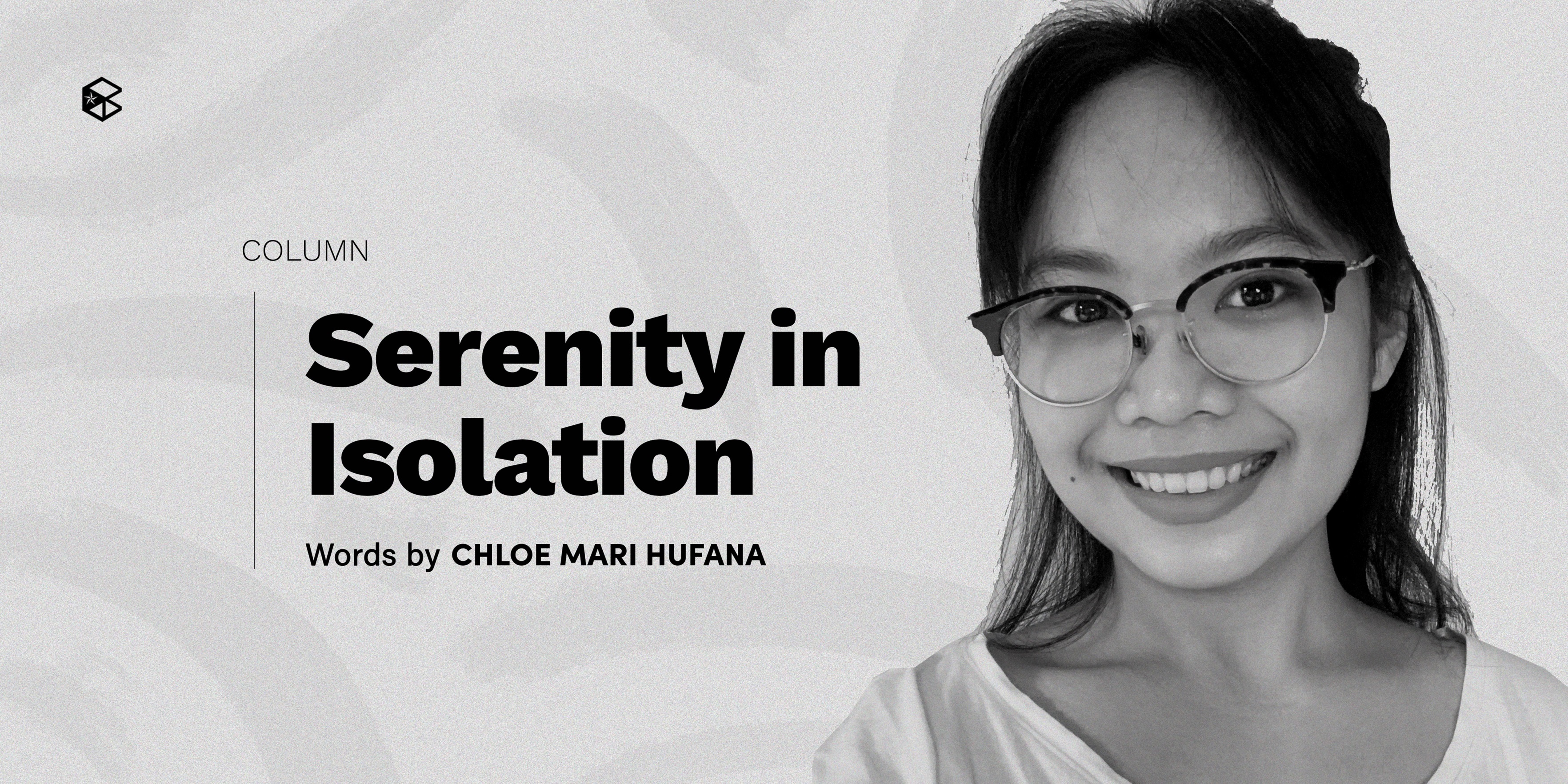As governments issue more restrictions, our normal routines have been disrupted, causing us to feel alienated from our usual company such as friends and family. With all this time in our hands and not being surrounded by the people we love, we are left alone with our thoughts, and sometimes, these aren’t healthy ones.
One effect of isolation is anxiety. In fact, HopeLine Project, a suicide prevention hotline initiated by the Department of Health (DoH), saw a 200% increase in calls in April 2020. “We’re getting calls that we never did before–70 to 85% are high anxiety,” said Jean Goulbourn, the hotline’s founder.
But solitude is never tantamount to loneliness; you can be alone but not lonely.
Solitude is a skill
Filipinos are very social beings. We love going to big gatherings, be the life of the party, and be with others. In this current situation, we tend to rely on technology to fill that physical void. But no matter how many Netflix shows we binge-watch, we still feel the gap that only physical interaction with our loved ones can fill.
In order to prevent loneliness from taking over, it’s vital we understand the art of being alone.
Solitude teaches you how to be comfortable with yourself. It’s not a walk in the park, it requires will-power to get out of that lump and actually embrace the peace it gives. When you’re thrown upon yourself, you realize what your capacities are.
In other words, solitude can be an experience where we “add” something to ourselves; something to help us grow.
The art of mindfulness
There are rewards you can get from solitude; apart from peace, you’ll enjoy the values it’s going to instill in you. It lets you discover yourself even more. The quietness around you lets you revisit parts of yourself that you may have left unappreciated or discover talents you never knew existed.
In German philosopher Friedrich Nietzsche’s Thus Spoke Zarathustra, he believes isolation can heal you from an “overstimulating culture” and reconnect us to ourselves.
However, even Nietzsche acknowledged that isolation brings out the “inner beast,” such as anxiety and other kinds of distress. For this reason, the philosopher said “solitude is ill-advised” for many people.
But in our situation today, being alone is enforced, not chosen. That’s why there are ways on how to adapt to this isolation.
To develop distress tolerance skills, there are comprehensive guides published, like in the Centre for Clinical Interventions.
First, accept the distress you’ve been feeling, and just stay with the emotion. Second, monitor the emotions until they subside. Lastly, turn your attention back to a task you want to do in the present moment. It can be a simple inward task like focusing on your breath or an outward task.
These emotions will keep coming back–but teaching yourself to face them, rather than running away from them, can tell you you’re strong enough to handle them. Accepting your emotions, letting them linger, remembering your purpose and yourself; are the strategies to help you deal with emotions, as psychologists imply.
In the end, we are all in a community of alone people in this pandemic. As much as we keep using distance-collapsing technologies to help us cope, accepting the fact that we are alone can help us be more mindful, and finally experience serenity in isolation.
This article is also published in The Benildean Volume 7 Issue No. 1: Confined


